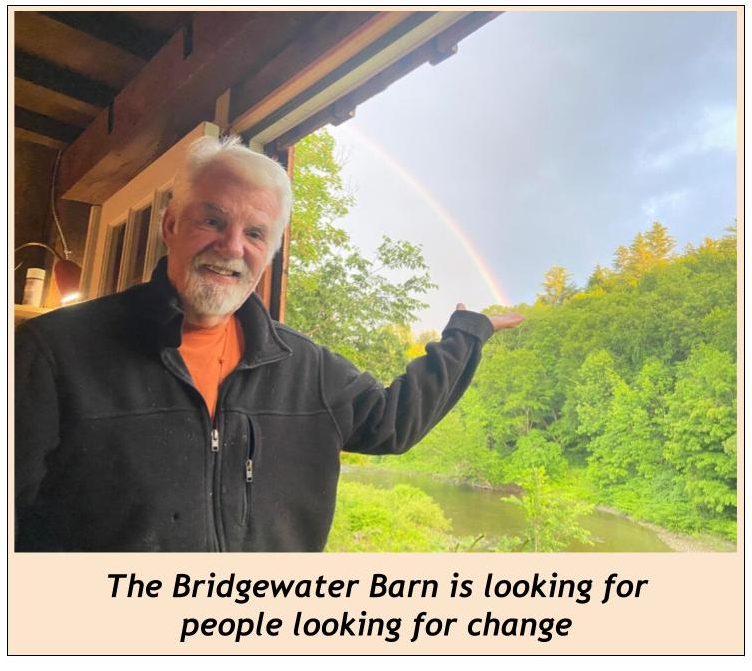By Rob Roper
During the July 8 meeting of the Vermont Climate Council’s Cross-Sector Mitigation Committee, the group started to delve into some of the details of what “the plan” to reduce the state’s greenhouse gas emissions might actually look like. In a nutshell, how you drive, heat your home, and heat your water are going to have to change. Needless to say, subsidizing multiple tens of thousands of Vermonters into electric vehicles, weatherizing many thousands of homes, and switching out existing heating systems for many more will cost a mountain of money.
After inventorying this list of proposals, committee member Richard Cowart made a truly unbelievable attempt at gaslighting about a Carbon Tax. He said, “I have a final point … about something that’s not on this list … and that is a Carbon Tax or something like that. We quite clearly are not proposing that…. And we’re not following the tack of thinking that if we were just to impose higher energy costs that the magic of the market would deliver these solutions.”
There was a brief spate of self-congratulatory agreement until Peter Walke of the Scott Administration stated the obvious, “Most of them [program proposals] are devoid of funding sources for these activities, so there will likely be discussion about how these things are funded as part of the Climate Council process. That’s likely to produce another round of discussion around a Carbon Tax.”

“Sure, we’re going to need revenue sources to run and deliver these programs….A lot of the recommendations do require funding, and so either TCI or something else realistically needs to be part of our policy package.”
– Richard Cowart, Vermont Climate Council
Cowart concurred, “I totally agree with that…. Sure, we’re going to need revenue sources to run and deliver these programs.”
Johanna Miller, Vermont Natural Resources Council, agreed. “I think it’s hard not to put these ideas on the table and not have a conversation about how you’re going to pay for that.”
So the we’re-not-proposing-a-carbon-tax line is just the loud part. The quiet part is, “as a proposal in and of itself. But we are proposing it as a funding mechanism for all this other stuff we want to do, and it will be massive.” Not exactly an honest presentation of information to the buying public.
Later the conversation turned to the Transportation Climate Initiative (TCI), which is essentially a regional Carbon Tax on motor fuels. Cowart again led the conversation: “One of the big options on the table now and has been for some time is the Transportation Climate Initiative, and I didn’t hear you focusing particularly on that.”
Gina Campoli enthusiastically chimed in, “It’s in the list!… We can’t avoid talking about it. A considerable amount of work has been done, and we want it to be on the table.”
And Cowart again, “A lot of the recommendations do require funding, and so either TCI or something else realistically needs to be part of our policy package.” So much for not recommending a Carbon Tax as a policy initiative in and of itself.
Johanna Miller then concluded, “Recognizing that we need more secure sustainable funding sources, so we did recommend Transportation Climate Initiative…. That’s why we have a placeholder here for including TCI, but likely not limited to.”
So, in the span of less than an hour we went from, “We’re not proposing a Carbon tax,” to “We are totally recommending a regional carbon tax on motor fuels, which likely won’t raise enough revenue to cover all the spending we want, so we’ll need another source of revenue, which will likely come from a straight Carbon Tax at the state level.”
– Rob Roper is president of the Ethan Allen Institute
Categories: Environment








We have a significant part of the population who have been convinced that we are facing an imminent climate catastrophe…Armogedden is real…chicken little just may be right. As enlightened spokesman for us citizens our representatives have stepped up and decided we need to do something. They have not yet done the “missionary” work necessary to convince us, their neighbors, that such a crisis is real and that if so there is actually something we can do about it. They simply leaped in and “for our own good” decided we need to do this plan they thought up (…you know – attack carbon, do the hokey-poky, turn ourselves about,…stop breathing and open our veins.). If we remain among the heretical unconvinced we’ll not be sitting at the enlightened cognoscenti table and we can forget the “Virtuous Contributor” badge..
I still think that expecting residents of small state that is already amongst the “greenest” states to break it’s own citizens to set an example for states with coal, and other less than climate friendly sources of power generation is not just unreasonable, it’s ludicrous ! I always like to make sure of the wind before I relieve myself, as I don’t generally have a pair of clean dry pants with me every where I go.
Patrick – thank God for a little humor along this journey – thank you for that!
As Mr. Cowart says,
“Sure, we’re going to need revenue sources to run and deliver these programs…”
Don’t be fooled again! Follow the money!
Basically, the members of the “Vermont Climate Council” want to turn their part time participation on this ludicrous council into lucrative, full time jobs with benefits. Vermont is already the greenest state in the Union.
But,
“Because a lot of the recommendations do require funding, and so either TCI or something else realistically needs to be part of our policy package.” And each of their nonsensical recommendations will require additional time on ludicrous council work, and of course we can’t expect them to do that essential work for free…
$150,000 each, including benefits, should do it nicely to start.
Get ready to pony up for these jackasses…
Mark is absolutely right about following the money and bureaucracy as this scheme unfolds.
This is a multi- billion dollar spending spree with no oversight.
And many Vermonters will pony up. But I think the unacknowledged trickle of folks migrating out will become a stream, then a small river. The wealthy have already covered themselves, leaving and becoming residents of lower taxed states. And some will migrate in, but with the increased cost of living in Vermont- this influx won’t make up for the loss. Vermont has seen a demographic change over the last 40-50 years and it will continue to where Vermont is unrecognizable to those of us who have been around a while. The proverbial genie is out of the bottle- but it may really be more of a Pandora’s box.
The VT insatiable VT Legislature should feel free to fund any new initiatives, AFTER they rescind some previous ones that are no longer needed…they can start with the silly notion of putting people who “claim” to be homeless in motel rooms.
I have not even seen concrete evidence that there even is a “climate” issue. Put this money grab right in the same bucket as the plandemic and jabs (among other revenue projects that strangely never appear) and YES someone needs to start following the money with invoices to back it up including the schools.
For all the hard work Vermont residents have accomplished in doing the “green” thing you would think there would be a reward of some kind. NOT!!